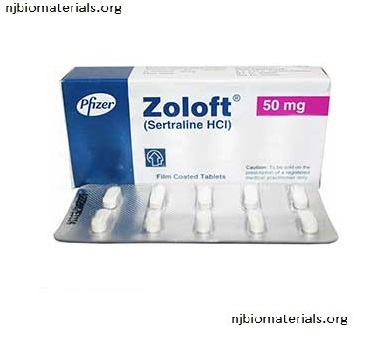Zoloft (Sertraline)
What is Zoloft
Zoloft, known generically as Sertraline, is a prescription medication that belongs to a class of drugs called selective serotonin reuptake inhibitors (SSRIs). It is primarily used to treat depression, but it is also effective for a variety of other mental health conditions, including anxiety disorders, panic attacks, obsessive-compulsive disorder (OCD), post-traumatic stress disorder (PTSD), and social anxiety disorder.
Zoloft works by inhibiting the reuptake of serotonin in the brain, which means it prevents serotonin from being reabsorbed back into the neurons. This action increases the amount of serotonin available in the brain, enhancing mood, reducing anxiety, and improving overall mental health. It may take a few weeks for Zoloft to show its full effects, so patients are encouraged to continue taking it as prescribed, even if they do not feel immediate improvements.
Recommendations
Zoloft is recommended for the treatment of several mental health conditions, and its use is tailored to the individual’s needs. It is often prescribed in the following situations:
• Major depressive disorder (MDD);
• Generalized anxiety disorder (GAD);
• Obsessive-compulsive disorder (OCD);
• Post-traumatic stress disorder (PTSD);
• Panic disorder;
• Social anxiety disorder.
The starting dose of Zoloft varies depending on the condition being treated, and it is often gradually increased to minimize the risk of side effects. It is important to take Zoloft as prescribed by your healthcare provider, and not to stop taking it abruptly without consulting your doctor.

Precautions and Contraindications
Before starting Zoloft, certain health conditions should be considered, as they may affect the safety of the medication. Precautions should be taken in the following cases:
• Bipolar disorder;
• Seizure disorders;
• Liver disease;
• Suicidal thoughts;
• Pregnancy and breastfeeding.
Your doctor will evaluate your overall health and any pre-existing conditions before prescribing Zoloft to ensure that it is a safe and appropriate treatment for you.
Interactions
Zoloft can interact with other medications, which may lead to increased side effects or reduced effectiveness. It is important to inform your healthcare provider of all medications, supplements, and over-the-counter products you are currently taking. Common interactions include:
• Other antidepressants (MAOIs, TCAs);
• Blood thinners (anticoagulants). Taking Zoloft with blood thinners, such as warfarin or aspirin, may increase the risk of bleeding;
• Nonsteroidal anti-inflammatory drugs (NSAIDs);
• St. John’s Wort;
• Other SSRIs or SNRIs. Combining Zoloft with other drugs that affect serotonin levels (such as other SSRIs, SNRIs, or triptans) can increase the risk of serotonin syndrome.
Make sure to discuss your current medication regimen with your healthcare provider to avoid harmful interactions and ensure the safe use of Zoloft.
Side Effects
Like all medications, Zoloft can cause side effects. While many people experience mild and manageable side effects, some may require medical attention. Common side effects include:
• Nausea;
• Diarrhea;
• Dizziness;
• Dry mouth;
• Increased sweating.
More serious side effects are less common but can include:
• Serotonin syndrome;
• Suicidal thoughts;
• Mania or hypomania.
If you experience any severe side effects, such as persistent suicidal thoughts, severe mood swings, or symptoms of serotonin syndrome, seek medical attention immediately.
Before You Start Zoloft Treatment
Before starting Zoloft, your healthcare provider will conduct a thorough evaluation to determine if it is the right medication for you. This may include the following:
• Evaluating the severity of your symptoms and any history of mood disorders, anxiety, or suicidal thoughts.
• Checking for any medical conditions that could affect treatment with Zoloft, such as liver disease or a history of seizures.
• Discussing your current medications, supplements, and over-the-counter products to avoid potential interactions.
• Your doctor may start you on a lower dose of Zoloft and gradually increase it to minimize side effects. Regular follow-ups will be scheduled to monitor your response to the medication.
It is important to follow your doctor’s instructions carefully, and not to stop taking Zoloft suddenly without consulting your healthcare provider, as this can lead to withdrawal symptoms.
Overdose
An overdose of Zoloft can be serious and may require immediate medical attention. Symptoms of an overdose include:
• Severe dizziness or fainting;
• Rapid or irregular heartbeat;
• Seizures;
• Confusion or agitation;
• Vomiting.
If you suspect an overdose, seek emergency medical help right away. Overdosing on Zoloft can lead to potentially life-threatening complications, including serotonin syndrome and severe central nervous system depression.